
Web Scalability for Startup Engineers
Artur Ejsmont
4.8 on Amazon
6 HN comments
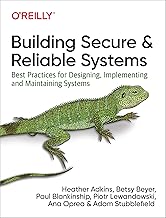
Building Secure and Reliable Systems: Best Practices for Designing, Implementing, and Maintaining Systems
Heather Adkins, Betsy Beyer , et al.
4.7 on Amazon
6 HN comments
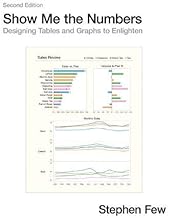
Show Me the Numbers: Designing Tables and Graphs to Enlighten
Stephen Few
4.5 on Amazon
6 HN comments

Database Internals: A Deep Dive into How Distributed Data Systems Work
Alex Petrov
4.7 on Amazon
6 HN comments

Whatever It Takes: Master the Habits to Transform Your Business, Relationships, and Life
Brandon Bornancin
4.8 on Amazon
6 HN comments

Kubernetes: Up and Running: Dive into the Future of Infrastructure
Brendan Burns , Joe Beda, et al.
4.6 on Amazon
6 HN comments

Python for Kids: A Playful Introduction to Programming
Jason R. Briggs
4.6 on Amazon
6 HN comments

The Phoenix Project (A Novel About IT, DevOps, and Helping Your Business Win)
Gene Kim
4.7 on Amazon
6 HN comments

Terraform: Up & Running: Writing Infrastructure as Code
Yevgeniy Brikman
4.6 on Amazon
6 HN comments

A World Without Email: Reimagining Work in an Age of Communication Overload
Cal Newport, Kevin R. Free, et al.
4.5 on Amazon
5 HN comments

Discovering Statistics Using R
Andy Field, Jeremy Miles , et al.
4.5 on Amazon
5 HN comments
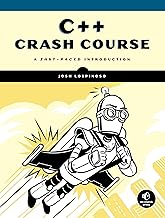
C++ Crash Course: A Fast-Paced Introduction
Josh Lospinoso
4.7 on Amazon
5 HN comments

Irresistible: The Rise of Addictive Technology and the Business of Keeping Us Hooked
Adam Alter and Penguin Audio
4.6 on Amazon
5 HN comments
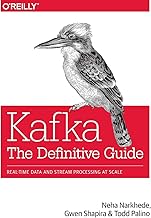
Kafka: The Definitive Guide: Real-Time Data and Stream Processing at Scale
Neha Narkhede , Gwen Shapira, et al.
4.4 on Amazon
5 HN comments
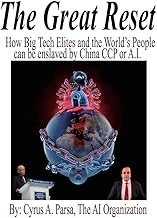
The Great Reset: How Big Tech Elites and the World's People Can Be Enslaved by China CCP or A.I.
Cyrus Parsa and The AI Organization
4.5 on Amazon
5 HN comments
j_sonAug 12, 2017
A New "History": Irresistible by Adam Alter (2017) https://amzn.com/dp/1594206643/
Your Recommendation: Addiction by Design by Natasha Dow Schüll (2014) https://amzn.com/dp/0691160880
j_sonAug 3, 2017
As mentioned here: The relationship between social media use and well-being | https://news.ycombinator.com/item?id=14082130
colmvponApr 10, 2017
The book, along with others like Hooked, remind me that we have to be very careful about the technology we use on a day to day basis, because it effects our brains in a way we might not want it too. Our brain and willpower is being tested against the skills of thousands of incredibly smart and talented designers, developers, product managers, et al.
Having chosen to abstain from apps like Facebook or social media websites, I don't feel like I lost anything. If anything, I've regained more time and mental space for things like getting deeper in my career. I'm not a luddite, as I am still a big believer in the productivity and information gains via the internet and computers. But our attention is a resource that a lot of companies want. And yet, I only feel like it's more recently that we've begun to question whether the benefits these companies give to us is worth the change in ourselves.
Because of mindfulness, I have recognized the need to distract myself (via Twitter, Reddit, E-mail, Whatsapp) is sometimes a symptom of not wanting to deal with something that is hard or uncomfortable (e.g. paperwork, making a decision, etc.).
Yet we know that become deep at something we care about, we truly do need focused time (Deep Work by Cal Newport is a worthwhile read). So I think it's really in our best interest to only choose apps that provide a lot of benefits with only marginal drawbacks to our mind, and to be very careful about how often we use them.
colmvponMar 14, 2017
One argument the author makes is that generally it's not that people merely lack willpower, it’s that “there are a thousand people on the other side of the screen whose job it is to break down the self-regulation you have.” And you could certainly extend that to food.
I'm reminded of one of my very intelligent friends in school who practically disappeared one year from all social activity and academics... because he got addicted to WoW. I have a very addictive personality with regards to games, especially RPG's/adventures, and have refused to ever play WoW because of the fear of addiction.
As much as I love computer games, I also recognize that video gaming have irrevocably resulted in stunting my social and personal development. I don't blame video games so much as recognize my vulnerability to gaming. Just like how alcoholics can't just have a sip, well neither can I. I know that if I play even a simple game like Hearthstone, I'll go down a rabbit hole that will take months to crawl out of. I'll stop doing certain regular activities, like studying, seeing friends, pursuing my long-term career, exercising, meditating, etc.
We talk about substance abuse and deride the addicts, but we also have a growing number of people who have behavioral addictions to their smartphone, games, news websites, e-mail, social media.
These addictions can arise when a person can’t resist a behavior, which, despite addressing a deep psychological need in the short-term, produces significant harm in the long-term. Deep gaming sessions for me tended to correlate with a certain unhappiness, specifically loneliness, and lack of fulfillment in my life. For one of my friends, gaming is a drug that placates the fact that for years, he has hated his job and has had issues finding a new one.
colmvponJan 8, 2018
After reading many books related to apps and attention (e.g. Hooked!, Irresistible), I elected to give up using Facebook, Instagram, and put heavy restrictions on my habit of going to Reddit/NYTimes/News Websites.
And I'll print things from the web so that I can concentrate on it without distraction in a quiet room with no digital distractions.
When I was younger, I probably called Knuth a luddite for abstaining from e-mail all the way back in the 90s. But wow, my opinion has done a full 180 over the 2010s.